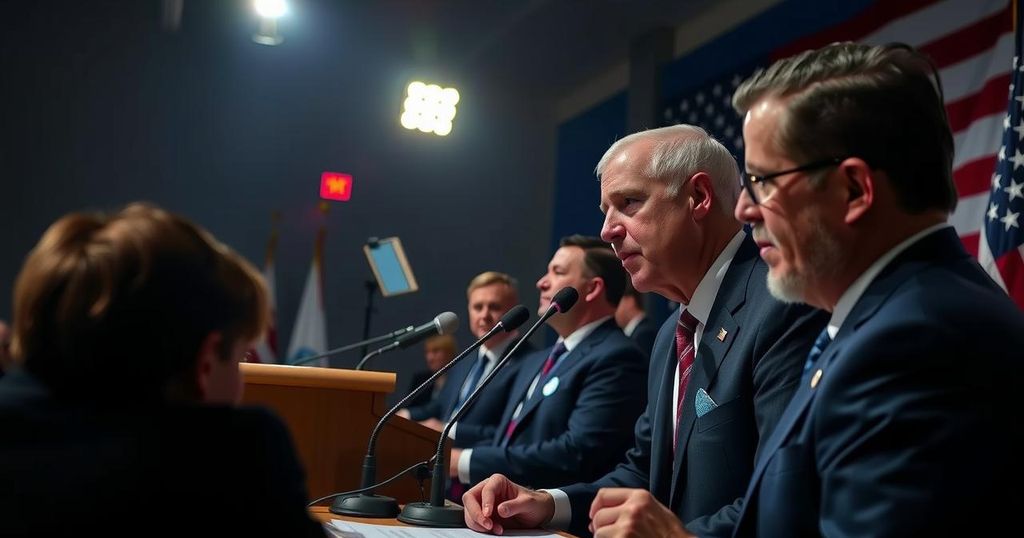Trump’s Anxiety Rises as Election Day Approaches, Campaigning Intensifies

Donald Trump displays increasing anxiety leading up to Election Day, marked by late-night inquiries to aides and concerns about voter turnout, particularly among men. Despite this, his campaign expresses confidence, citing favorable polling positions. Trump will be making several campaign stops in the coming days to galvanize support, especially in swing states. His focus on electoral integrity and active engagement in rallies reflect a strategic push to secure victory against Kamala Harris in a closely contested election.
As Election Day approaches, former President Donald Trump is exhibiting signs of anxiety, despite his campaign team projecting an image of confidence. Reports indicate that Trump has been increasingly restless and inquisitive about his standing in the election, frequently questioning aides about their assessments of his chances of winning. An internal memo from his chief pollster suggests that Trump is in a stronger position now compared to his 2020 campaign, yet his personal apprehension is palpable in his late-night calls to his team. This anxiety is currently reflected in the political landscape, particularly among conservative circles, where concerns regarding disappointing early voting turnout among male voters have arisen. Given the gender dynamics of the current electoral environment, it is essential for male voters to mobilize, as trends indicate a higher turnout among female voters. Charlie Kirk of Turning Point USA noted on social media, “If men stay at home, Kamala is president. It’s that simple.” In an effort to maintain momentum, Trump has engaged in a series of eye-catching campaign events, including a rally at Madison Square Garden that attracted significant media attention due to controversial remarks made by various speakers. Furthermore, Trump’s campaign has taken proactive measures to address concerns about electoral integrity by establishing a unit dedicated to monitoring polling activities and responding to claims of irregularities. Over the next few days leading up to Election Day, Trump’s campaign strategy includes multiple visits to crucial swing states such as North Carolina, aiming to bolster support in areas deemed pivotal for electoral success. Steven Cheung, a spokesperson for the campaign, emphasized Trump’s dedication to victory, stating, “President Trump and his campaign are solely focused on victory — that is why he has out-worked Kamala Harris every single day for months, and will end the campaign with over a dozen stops in four days.”
In the current political climate, the run-up to the election is critical for candidates to gauge their standings and strategize accordingly. For Donald Trump, previous patterns indicate intensified activity in the days leading up to an election, characterized by rallies and media engagements aimed at energizing his base. Additionally, understanding voter turnout trends, particularly among different demographics, plays a significant role in shaping campaign tactics. In this context, Trump’s campaign is attempting to address perceived weaknesses while leveraging strengths, particularly in swing states that might determine the election outcome.
In summary, Donald Trump’s mounting anxiety as Election Day approaches reflects a broader apprehension within his campaign about voter turnout and election dynamics. While his team remains optimistic, internal communications reveal a heightened scrutiny concerning his political standing. The upcoming days are poised to be pivotal as Trump intensifies campaign efforts in key states, with a significant focus on mobilizing male voters to counterbalance early voting trends favoring women voters.
Original Source: www.axios.com







